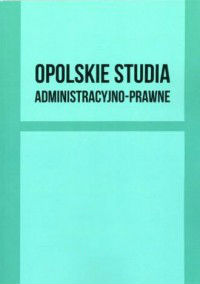Przystąpienie do Unii Europejskiej a członkostwo w Unii Gospodarczej i Walutowej
Accession to the European Union and membership in the Economic and Monetary Union
Author(s): Joanna RyszkaSubject(s): Law, Constitution, Jurisprudence
Published by: Uniwersytet Opolski
Keywords: THE ECONOMIC AND MONETARY UNION; CONVERGENCE CRITERIA; TREATY DEROGATION; PROTOCOL DEROGATION; PROCEDURE OF REFRAINING FROM EXCESSIVE DEFICIT; THE ‘SIXPACK’; “EURO PLUS PACT”; THE SO-CALLED FISCAL PACT; EUROPEAN STABILITY MECHANISM
Summary/Abstract: The concept of the Economic and Monetary Union is understood as a kind of advanced stage of economic integration based on a common market, where close coordination of economic and fiscal policy is provided, and, in the case of countries that meet certain conditions – a common monetary policy and a single currency. The Economic and Monetary Union includes two types of states: those that are members of the EU and remain outside the eurozone and those which are characterized by simultaneous membership in the EU and in the eurozone. Adoption of the euro, in fact, is one of the obligations of membership in the EU, although it may only follow upon fulfillment by the member state of the convergence criteria. Responsibilities of the member states forming the Economic and Monetary Union and using the euro are generally different, although one can point to certain elements that are in common. One of them is the obligation to refrain from excessive budget deficits. Although all members of the Economic and Monetary Union must ensure economic coordination within the EU, the consequences of non-compliance with the relevant reference values are in fact different in relation to the eurozone countries and those beyond it. Ensuring the effectiveness of execution of these obligations is of paramount importance in the time of the financial crisis that emerged in 2008. The EU has taken some interesting steps to be able to successfully fight this financial crisis, like, for example, the so-called fiscal pact or the European Stability Mechanism. Identification of all EU member states with the objectives of the EU strategy to fight the crisis will undoubtedly strengthen the EU’s credibility in international financial markets.
Journal: Opolskie Studia Administracyjno-Prawne
- Issue Year: XI/2013
- Issue No: 4
- Page Range: 59-74
- Page Count: 16
- Language: Polish

